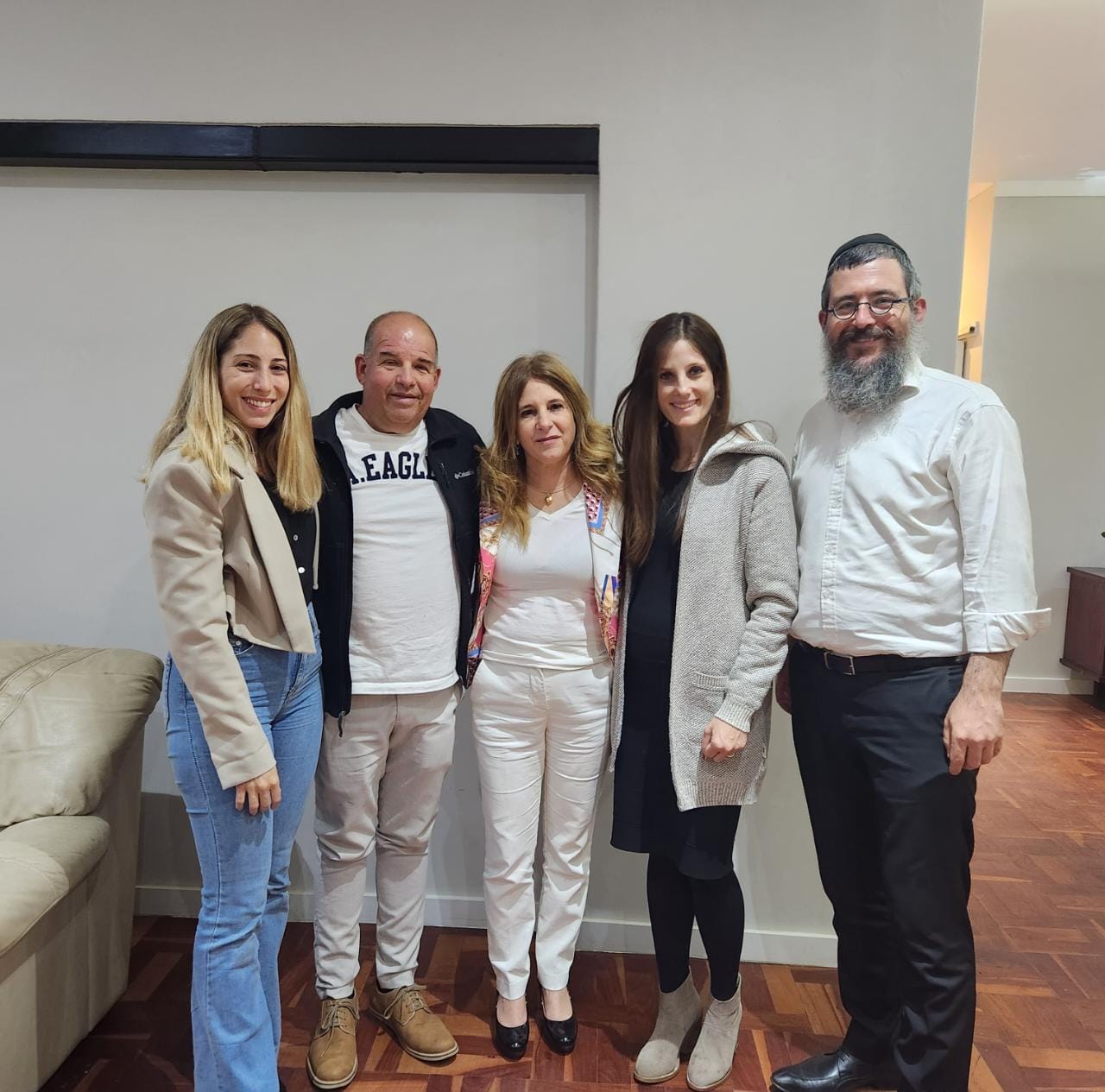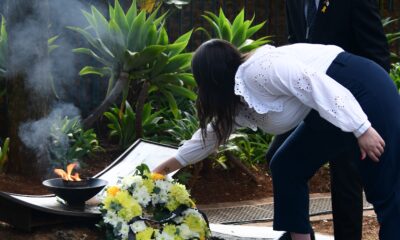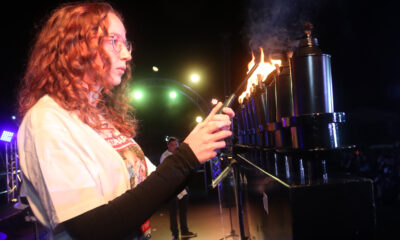
Israel

Rehabilitated soldiers share hope and inspiration
Sharon Shtrachman will never forget that awful moment in 2015 when she and her husband, Miki, received the call to say that their daughter, Lee (now 27), who was on border patrol in the Israel Defense Forces (IDF), had been injured. A terrorist had rammed his car into Lee. Then, with a knife in his hand, he chased her through the streets of Jerusalem.
Shtrachman described the harrowing trip to the hospital to find her daughter as “the hardest moment” in her life. “I knew the child I gave to the army, but that child was very different to the one I got back,” she told the SA Jewish Report.
Her daughter sustained injuries to her legs, chest, and head, and their extent meant she would have to undergo an extensive two-and-a-half-year rehabilitation. “It isn’t just the physical wounds which are left after a soldier is injured,” Shtrachman, who also has two sons, aged 30 and 22, explained. “There’s also emotional trauma, specifically post-traumatic-stress disorder (PTSD), to overcome.”
The Shtrachmans were in South Africa this week as a guest of Sydenham Shul for this week’s Yom Hazikaron commemoration. They head up the operations of Belev Echad, an organisation which helps wounded IDF soldiers recover. They travelled with Dana Ofir (25), a former IDF soldier who, after being wounded in a terrorist attack in 2016, has used her story to inspire formerly wounded soldiers. Like Lee, Ofir was the survivor of a car ramming.
“For as long as I can remember, I was stubborn and always followed my dreams. I wanted to have an impact on the people in the army. There were obstacles in my way to becoming an officer, but I made it happen,” she said.
Ofir said she was on an education trip to Jerusalem on the last days of her officer’s course. “We visited a beautiful spot with a view of Jerusalem, called Armon Hanatziv, when everything went black in a second. A terrorist driving a truck like a madman ran over the group of cadets. I was among them.” The group was left devastated: 15 soldiers were injured, four killed, and three others, including Ofir, were seriously injured.
Ofir spent two months in a wheelchair following the accident and then some time afterwards trying to regain her courage to live, struggling, as many wounded soldiers do, with PTSD. “The rehabilitation process was exhausting and demanding. I did physiotherapy four days a week, for three hours at a time,” she said.
Like Ofir, Shtrachman’s daughter, Lee, had a long recovery period. “The doctor said she would never walk again, however, she was determined, as were we.” Following intensive therapy, Lee is now walking again. “We believe she’s a miracle, even though she still lives with PTSD and has some problems with her legs,” Shtrachman said.
“Many who have been involved in war or the target of terrorism cannot sleep at night. All the time, they are looking around to see if someone might attack,” she said. “Some get nervous when there’s a loud voice. Some need to be assured constantly that everything is ok. They might experience problems in their relationships. Some find it hard to walk.”
Her daughter’s trauma isn’t over. “She feels sick because of ongoing surgery and struggles with PTSD. But we help to remind her and the others that they are heroes,” Shtrachman said. “On Yom Hazikaron, we remember those who have died, however there are soldiers who, while they continue to live, inside are dying,” Shtrachman said. “These are the ones we need to honour and uplift.”
She recounted the story of a young soldier who lost three friends in an attack in Israel. “He didn’t want to come out of his room. However, we took him step by step through recovery, noticing that he loved to watch cooking tutorials on YouTube. Today, he’s the chef in a house supporting recovering wounded soldiers.”
Ofir spoke of the most memorable moment of her recovery. “Within six months, contrary to medical predictions, I started to run. The first time, I was able to run for five minutes. Those few moments were the happiest I remember.”
She said her injury had been a good excuse for her to be released from the IDF, but she didn’t want to accept it as she felt she had to “complete her mission”. She fought to reclaim her position as a combat fitness officer, eventually succeeded, and was put in charge of two combat battalions of 500 soldiers each.
After serving the IDF in this capacity for five years, she was released and is now working as a group fitness trainer and studying sports therapy. Her new mission is to “help friends”.
“My wife and I were privileged to host the guests from Belev Echad in our home, and to see their resilience and faith,” said Sydenham Shul Rabbi Yehuda Stern.
“They connected more with G-d after the accident, and have a mission and stories to share to inspire Jews of the diaspora. The Jewish community can learn humility from their stories – realising how we are so vulnerable as humans and ultimately, are in the hands of Hashem.”
The rabbi said the shul was proud to partner with Belev Echad in bringing this message of hope to the community. “It’s so moving, so powerful that before we celebrate the independence of Israel, we remember those who have suffered and have sacrificed their lives for the state of Israel,” he said.










